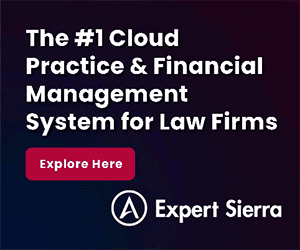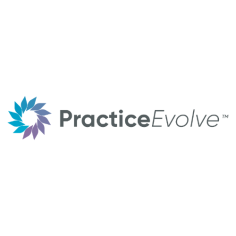Industry interview with Linetime: Paperless process
This article was also featured as an industry interview in the September 2016 issue of Legal Practice Management magazine. To read the issue in full, download LPM magazine.
Competition and price pressures, and an increasingly digital client base are all significant drivers for law firms to become paperless businesses. Tony Klejnow, Linetime’s managing director, says firms could achieve competitive advantage by introducing paperless solutions across their businesses – but a particular ‘easy win’ area is matter management. “Fee earners are required to keep detailed records of their cases, but the amount of time and money they waste physically printing, filing, looking for, collaborating on, and updating files is alarming,” says Klejnow. Law firms have traditionally been reluctant to adopt paperless workflow solutions, he adds, because workflow doesn’t apply to 99% of fee earners’ work. “But if they adopted paperless solutions in their back ofce processes, they could reduce costs without afecting client service, boost productivity and promote collaboration – making them more efcient, flexible and cost efective, and making them more competitive in an ever-changing legal market.”
Matter matters
Document and matter management tools – like those in Linetime’s legal software product Liberate – electronically store and organise all case documentation in an online database. Klejnow says that there are two immediate benefits of paperless matter management. The first is reducing paper and storage costs:
“If case documentation is electronically stored, once a case is finished, you no longer have a fiveinches-thick file that has to be stored for six years – which has to reside somewhere, and costs firms time, space and money.” The second is eliminating filing time – for example, instead of printing and filing emails and attachments, fee earners drag and drop emails directly from Outlook into the database “and attachments are automatically stripped from emails and appropriately filed,” says Klejnow.
And, Klejnow says, paperless filing systems don’t just facilitate efciency this way – they also improve general process efciency by facilitating collaboration between fee earners. Solicitors can use document and matter management to view and work on matters at the same time, a difcult if not impossible prospect when working with paper files. Klejnow says: “Without document management, legal professionals work in silos, but with it they immediately share data.” He adds that Liberate has an additional collaboration tool to help further improve collaborative efciency in firms: “If I choose to ‘collaborate’ a document with you on Liberate, Outlook will prompt you to review that document by simply acknowledging the notification.”
In this respect, moving to become a paperless business provides greater flexibility for fee earners who can collaborate with colleagues working remotely or in diferent ofces. Klejnow says: “Paper files can only reside in one location, but electronic files can be accessed from any ofce and when working from home or with clients.” On the other side of the coin, having digital files maintains a greater level of productivity in a law firm ofce. “If your colleague is absent from the ofce you can easily find documents that you might have otherwise wasted a significant portion of your day looking for,” he adds.
Improved external collaboration is also a benefit that firms can reap from paperless matter management. With an electronic system you can go into a case history, bundle documents into one PDF file, and quickly submit that to the third party, improving collaboration between fee earners and clients who want to do everything online. This has the added benefit of improving accuracy and facilitating greater efciency by involving clients in the process. “Good matter management software should also let you push e-forms to clients to be filled in, and that information is automatically transferred straight to the online database – which saves fee earners time and is a more accurate because the information doesn’t have to be constantly re-entered,” says Klejnow. This extra level of collaboration within legal businesses, that hasn’t been possible until now, has long been needed because it improves efciency and productivity, which makes the business more profitable and competitive. Klejnow adds that what firms save by adopting matter management they should reinvest in becoming fully paperless digital businesses.
“Case management solutions can improve efciency to an even greater extent and keep firms competitive in the age of the alternative business structures.”
Visible compliance
In response to firms reluctant to adopt paperless technologies, like document and matter management, for fear of losing delicate information to cybercriminals, Klejnow says those systems provide an additional level of security. “Taking data and attachments out of Outlook and storing them on a database is much more secure than leaving them on your hard drive. If you leave your laptop on a train, for example, all your important data is safely stored on a server and not instantly accessible by opportunist criminals.”
Document and matter management also ofers a greater level of security in fee earner and client communications. “If I want you to check that the data we have for you is accurate, Liberate will direct you to a page holding your data, and at the same time it will push out an SMS text with a pin code to your phone. Unless you input the code you can’t get to the web page – which means if one of your solicitors accidentally sends an email to the wrong person, or it’s intercepted, it doesn’t matter. The data stays safe – this level of security is crucial in this age of cybercrime.”
These security features clearly have significant benefits for compliance, which is important in a market increasingly dictated by regulation, including the relatively new General Data Protection Regulation, says Klejnow.
“Compliance ofcers need to be seen by regulators to have monitored and reviewed everything that’s happened in their firm, which is considerably easier with a paperless system. Liberate has ‘version control’ which allows compliance ofcers to keep tabs on every change made to a document, as well as a compliance module which lets them view what’s happening on a case (to ensure that money laundering checks have been carried out, and so on) and records the fact that you’ve reviewed this.”



